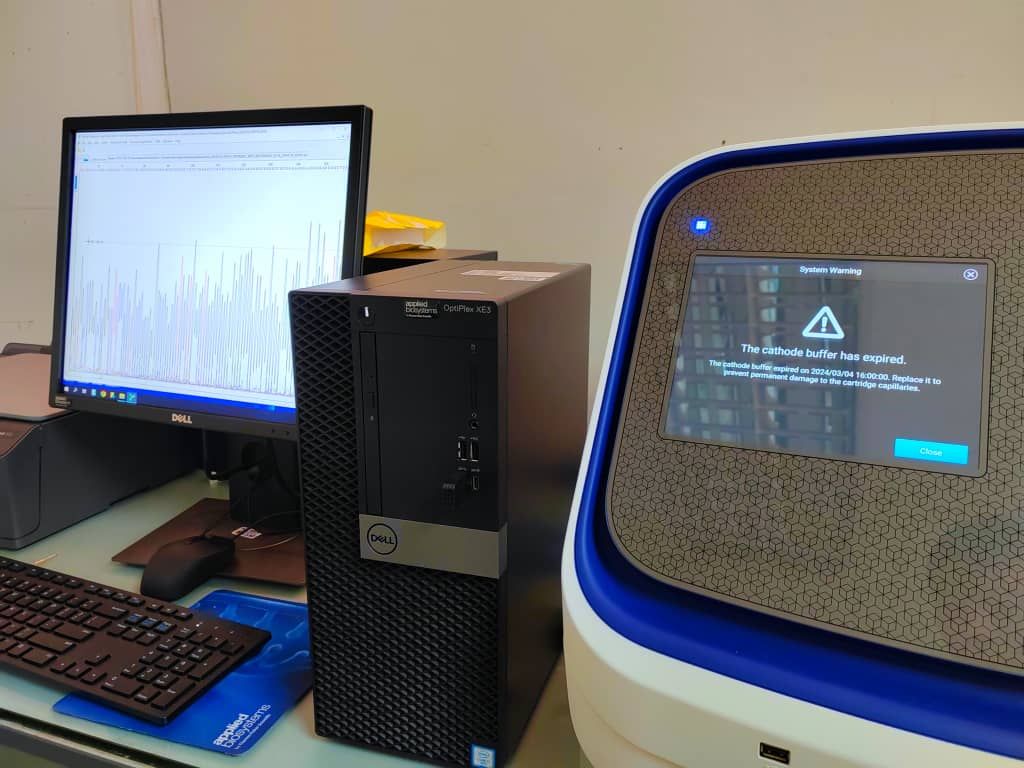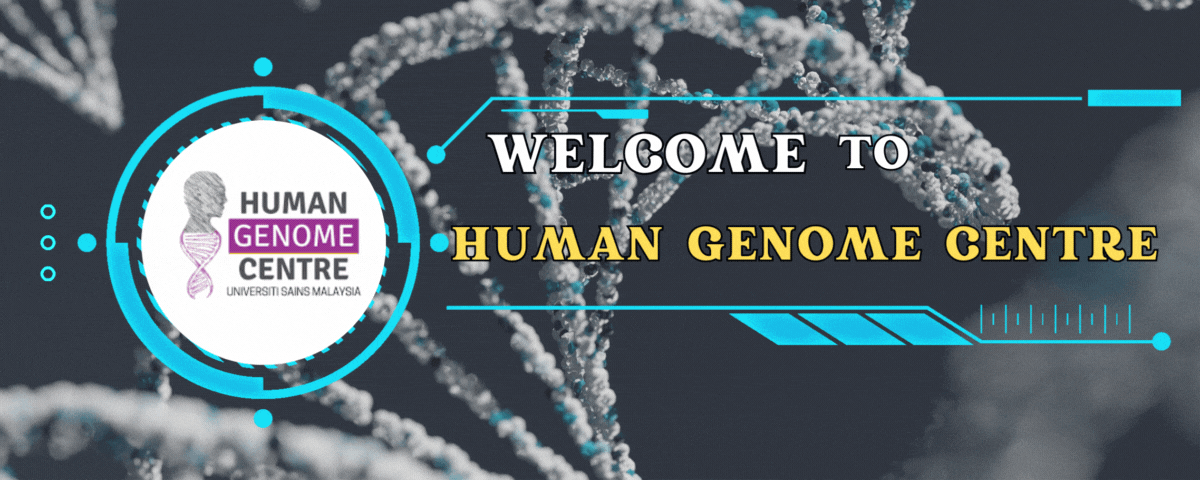MOLECULAR GENETICS TESTS

|
1 |
Ordering recommendation |
|
|
2 |
Accreditation status (MS ISO 15189) |
|
|
3 |
Submit with order |
|
|
4 |
Specimens required |
|
|
Collection tube |
|
|
|
Specimen preparation |
|
|
|
Storage/Transport temperature |
|
|
|
5 |
Methodology |
PCR & Sanger Sequencing |
|
6 |
Turnaround time (TAT) |
30 days |
|
7 |
Shipping instruction |
Sample should be sent to: Human Genome Centre (HGC), School of Medical Sciences, Health Campus, Universiti Sains Malaysia, 16150 Kubang Kerian, kelantan |
|
1 |
Ordering recommendation |
|
|
2 |
Accreditation status (MS ISO 15189) |
|
|
3 |
Submit with order |
|
|
4 |
Specimens required |
|
|
Collection tube |
|
|
|
Specimen preparation |
|
|
|
Storage/Transport temperature |
|
|
|
5 |
Methodology |
|
|
6 |
Turnaround time (TAT) |
|
|
7 |
Shipping instruction |
|
|
1 |
Ordering recommendation |
|
|
2 |
Accreditation status (MS ISO 15189) |
|
|
3 |
Submit with order |
|
|
4
|
Specimens required |
|
|
Collection tube |
|
|
|
Specimen preparation |
|
|
|
Storage/Transport temperature |
|
|
|
5 |
Methodology |
|
|
6 |
Turnaround time (TAT) |
|
|
7 |
Shipping instruction |
|
|
1 |
Ordering recommendation |
|
|
2 |
Accreditation status (MS ISO 15189) |
|
|
3 |
Submit with order |
|
|
4 |
Specimens required |
|
|
Collection tube |
|
|
|
Specimen preparation |
|
|
|
Storage/Transport temperature |
|
|
|
5 |
Methodology |
|
|
6 |
Turnaround time (TAT) |
|
|
7 |
Shipping instruction |
|
|
1 |
Ordering recommendation |
|
|
2 |
Accreditation status (MS ISO 15189) |
|
|
3 |
Submit with order |
|
|
4 |
Specimens required |
|
|
Collect |
|
|
|
Specimen preparation |
|
|
|
Storage/Transport temperature |
|
|
|
5 |
Methodology |
|
|
6 |
Turnaround time (TAT) |
|
|
7 |
Shipping instruction |
|
|
1 |
Ordering recommendation |
|
|
2 |
Accreditation status (MS ISO 15189) |
|
|
3 |
Submit with order |
|
|
4 |
Specimens required |
|
|
Collection tube |
|
|
|
Specimen preparation |
|
|
|
Storage/Transport temperature |
|
|
|
5 |
Methodology |
|
|
6 |
Turnaround time (TAT) |
|
|
7 |
Shipping instruction |
|
|
1 |
Ordering recommendation |
|
|
2 |
Accreditation status (MS ISO 15189) |
|
|
3 |
Submit with order |
|
|
4 |
Specimens required |
|
|
Collection tube |
|
|
|
Specimen preparation |
|
|
|
Storage/Transport temperature |
|
|
|
5 |
Methodology |
|
|
6 |
Turnaround time (TAT) |
|
|
7 |
Shipping instruction |
|
|
1 |
Ordering recommendation |
|
|
2 |
Accreditation status (MS ISO 15189) |
|
|
3 |
Submit with order |
|
|
4 |
Specimens required |
|
|
Collect tube |
|
|
|
Specimen preparation |
|
|
|
Storage/Transport temperature |
|
|
|
5 |
Methodology |
|
|
6 |
Turnaround time (TAT) |
|
|
7 |
Shipping instruction |
|
|
1 |
Ordering recommendation |
|
|
2 |
Accreditation status (MS ISO 15189) |
|
|
3 |
Submit with order |
|
|
4
|
Specimens required |
|
|
Collection tube |
|
|
|
Specimen preparation |
|
|
|
Storage/Transport temperature |
|
|
|
5 |
Methodology |
|
|
6 |
Turnaround time (TAT) |
|
|
7 |
Shipping instruction |
|
|
1 |
Ordering recommendation |
|
|
2 |
Accreditation status (MS ISO 15189) |
|
|
3 |
Submit with order |
|
|
4
|
Specimens required |
|
|
Collection tube |
|
|
|
Specimen preparation |
|
|
|
Storage/Transport temperature |
|
|
|
5 |
Methodology |
|
|
6 |
Turnaround time (TAT) |
|
|
7 |
Shipping instruction |
|
|
1 |
Ordering recommendation |
|
|
2 |
Accreditation status (MS ISO 15189) |
|
|
3 |
Submit with order |
|
|
4 |
Specimens required |
|
|
Collection tube |
|
|
|
Specimen preparation |
|
|
|
Storage/Transport temperature |
|
|
|
5 |
Methodology |
|
|
6 |
Turnaround time (TAT) |
|
|
7 |
Shipping instruction |
|
|
1 |
Ordering recommendation |
|
|
2 |
Accreditation status (MS ISO 15189) |
|
|
3 |
Submit with order |
|
|
4 |
Specimens required |
|
|
Collection tube |
|
|
|
Specimen preparation |
|
|
|
Storage/Transport temperature |
|
|
|
5 |
Methodology |
|
|
6 |
Turnaround time (TAT) |
|
|
7 |
Shipping instruction |
|
